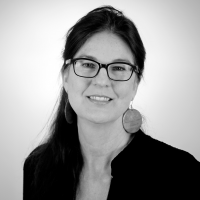Photo: getarchive.net
Protecting Marine Ecosystems with Historical Knowledge
- Presentation
- Date
-
- Location
- Vilm, Germany
- Speech
As part of the annual Marine Nature Conservation Colloquium, scientists from the research projects commissioned by the German Federal Agency for Nature Conservation (BfN) present their interim results and open questions. On behalf of Ecologic Institute, Dr. Grit Martinez presented initial results from the research project The German North Sea and Baltic Sea over 100 years ago (HISTOMAR). The "Shifting Baseline Syndrome" was the focus of the presentation and the subsequent discussion.
In the project "The German North Sea and Baltic Sea over 100 Years Ago" (HISTOMAR), the Ecologic Institute team, together with two subcontractors, is developing a historical reference for marine species populations in the German North Sea and Baltic Sea over 100 years ago, which will serve as a guide for the Federal Agency for Nature Conservation in establishing and expanding nature reserves in the German Baltic Sea and North Sea.
At the Marine Conservation Colloquium, Dr. Grit Martinez explained the importance of historical marine knowledge: Species decline, loss of Arctic ice, sea level rise: measuring differences over time always requires a starting point as a reference. This reference point is usually referred to as the baseline. As habitats and the species inventory in the oceans have changed gradually, reference points shift over generations. The marine ecosystems in the German North Sea and Baltic Sea have already undergone several baseline shifts, which are currently also being accelerated by global warming. While baseline shifts used to occur intergenerationally, today this happens within a single lifetime or at even shorter intervals. Without knowledge of the marine species inventory and marine ecosystems in the past, each generation perceives the current (already changed) state as the norm. Overall, this can lead to false expectations of ecosystems and distorted objectives.
As numerous marine organisms are relevant for the conservation of stable ecosystems in the German North Sea and Baltic Sea, selected marine species are examined in detail in HISTOMAR with regard to their abundance and distribution. The focus is particularly on extinct and rare key species as well as endangered fish species, marine mammals, birds and benthic organisms. Using current and historical data from survey databases, historical documents in archives and natural history research institutions, the project team will gain insights into past states of marine ecosystems in the North and Baltic Seas. The team will document the degree of change and explain which species and habitats have experienced significant declines and how historical knowledge can contribute to marine conservation.
The annual Marine Nature Conservation Colloquium serves as a forum for scientific exchange between the respective project teams and the BfN to identify further research needs and to promote synergies and opportunities for cooperation. Overall, the research projects support the work of the BfN in the fields of monitoring selected species and habitats, recording and evaluating marine ecosystems, designating and managing marine protected areas, climate protection in the sea, developing measures to minimize pollution and international marine nature conservation.



